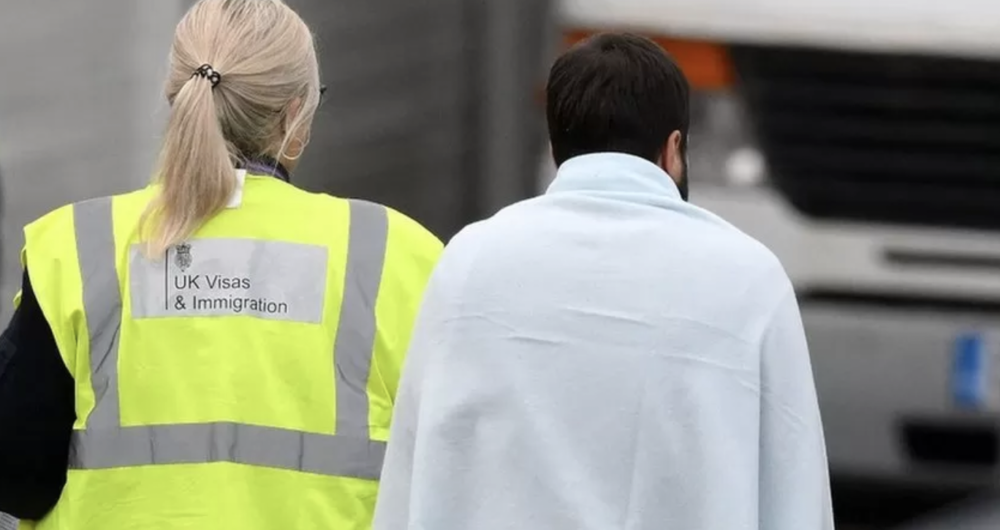According to reports to the BBC, Albanian drug gangs are recruiting in the northern French migrant camps by promising to pay for the travel of potential recruits who are willing to participate in the UK drug trade upon arrival.
According to UK government statistics, the nearly 40,000 migrants who have landed in small boats so far this year include around a third of Albanian nationals.
Senior law enforcement and immigration authorities on both sides of the English Channel are concerned about the rising assistance provided by Albanian middlemen in enabling border crossings.
The BBC conducted interviews with Albanians who travelled to the French coast to board small boats for the Channel crossing to the UK.
They informed us of the many services offered for people smuggling, with Albanians mostly serving as intermediaries for other networks, which are frequently operated by Iraqi Kurds, who are in charge of the small boat operations.
We also visited Albania, where we observed how young Albanians were being drawn to France, leaving areas close to the capital Tirana nearly deserted.

We got in touch with two Albanian people smugglers who were soliciting customers online by posing as migrants. Within a half-hour, both replied.
On arriving in England, we may use a guarantor to pay in France before leaving. And assistance with filing an asylum petition was provided.
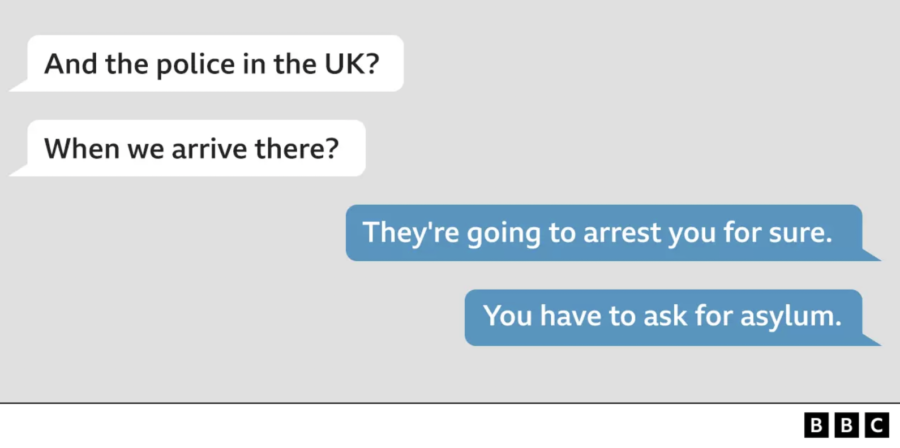
One of them stated, “I’ll help you get through from Calais to the UK.” “Take a bus to Belgium, then take a train or a taxi for two or three hours to Calais from there.”
We were informed that they would pick us up from the hotel when it was time to leave. “There won’t be any issues for you.”
I’ll assist you find your way, but it’s really easy to go there, said another as he promised to stay in touch with us the entire trip.
When we arrived in the UK, we inquired about what to anticipate from the police.
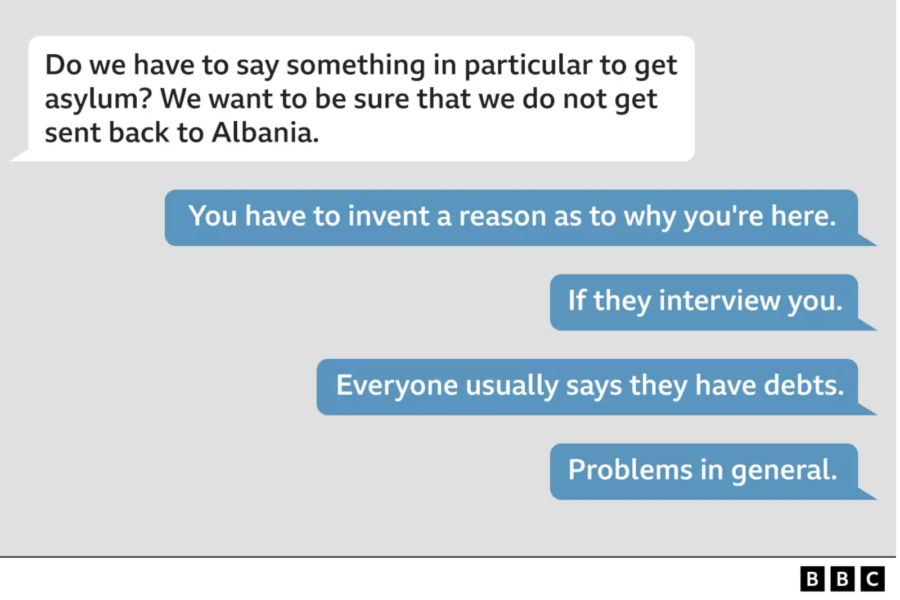
One of them said, “They’re definitely going to arrest you.” “You must apply for asylum. The only people sent back were those who didn’t request refuge. No issues were experienced by the others. Create a justification for your presence here. Typically, people will claim to have debts or other troubles.”
They both made it seem quite simple to travel.
According to eyewitnesses, Albanians spent some time this summer in the biggest migrant camp in Dunkirk.
Small hotels near the station, such Hotel Bretagne and Le Lion d’Or, are increasingly used as staging areas for Albanian migrants; they have 24-hour phone numbers posted to the glass, perpetually closed doors, and no personnel to be seen.
These are some of the locations where Albanian middlemen wait for customers, serving as a vital link between the minor boat crossings controlled by networks of Iraqi and Kurdish people.
One Albanian man informed me, after arriving in the UK this summer via tiny boat, “In France, there are people who wait for you.” If you want to travel to England, everyone in the world knows where to go.
From the street outside Dunkirk station, we see Kevi smoking a cigarette at the window of his second-floor room at Le Lion d’Or. 20-year-old newcomer from Albania who is tense and excited for the journey.
He has only been here a few days, but he has already found someone to arrange his crossing, and he is awaiting the call to depart.
He complains, “The weather is bad.” We might have to wait an additional two days.
Being able to enter the EU as a tourist for up to three months without a visa makes it simple for Albanian nationals like Kevi to travel to northern France.
The majority get there by bus or automobile, encouraged by social media ads that promise assistance from middlemen in Brussels, Paris, Calais, or Dunkirk.
Journalist from Albania Eraldo Harlicaj explained to me, “The intermediaries approach you, and you just choose the cheapest price.”
For Albania’s ABC television programme, Eraldo recently pretended to be a migrant. He claimed that the majority of Albanian middlemen avoided Dunkirk’s main migrant camp, where Kurdish and other networks exercise influence.
“We became aware of the Albanians’ lack of actual power once we were inside the camp. Kurds managed everything, “According to Eraldo. “The Kurds organised everything in the camp and organised the transit of refugees to England.”
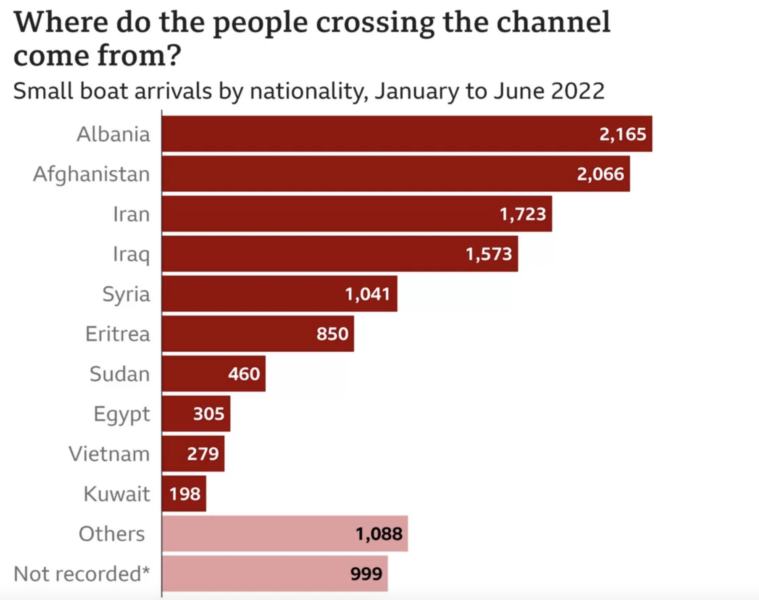
Senior French officials who are concentrating on this issue have confirmed that Albanians are currently acting as middlemen, liaising between Albanian migrants and Iraqi-Kurdish smuggling groups.
Off-the-record, he claimed that while Iraqi-Kurdish networks now control 80% of small boat operations, the French government is worried about the possibility of Albanian citizens establishing their own independent operations, raising the possibility of violent conflict between the groups.
12,000 Albanians, almost all of them young males travelling alone, according to the UK authorities, have entered the country this year via small boat.
Some neighbourhoods in Albania’s capital city Tirana are losing residents.
On the flight path from France to Albania is Laknas. Passenger planes soar over the quiet, desolate town, passing over the empty café and the little mosque, which is framed by half-finished buildings and shuttered homes.
Traders congregate on the quiet street to lament the failure of their businesses.
By the still-busy main road, a couple of cows mutter at the grass.
Their owner said, “They’re all I have left.” “My kids have left for England.”
According to locals, 70% of the community has already emigrated to the UK. And the departures keep going.
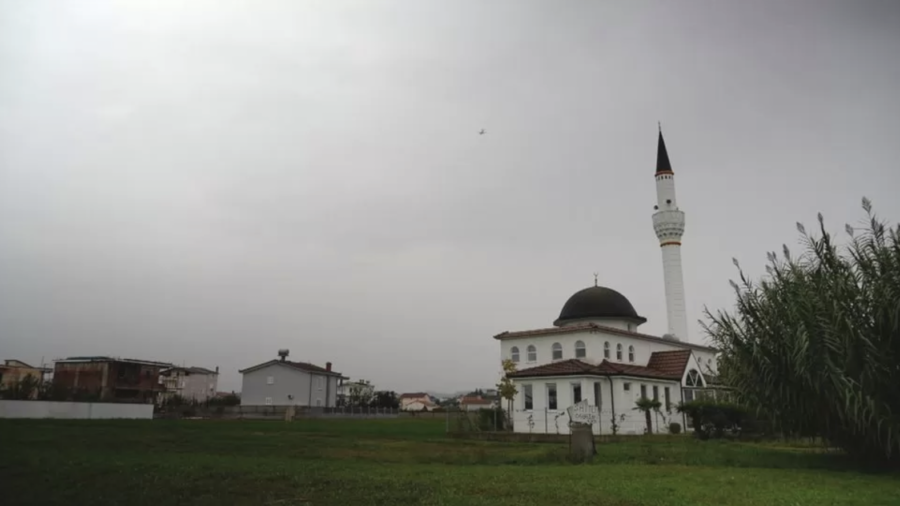
70% of Laknas residents, according to locals, have already emigrated to the United Kingdom.
Laknas-like locations can be found all over Albania nowadays.
The fundamental motivator is still economic opportunity. Corruption is a widespread issue, and according to Eurostat data from 2018, Albania’s median household income is only €1,997 (£1,744), compared to the UK’s €21,464 median income.
With three or four neighbourhood pals, Majlinda’s kid travelled to the UK a month ago.
She has requested that we not reveal her real name; Majlinda is not it. She informed me that although her son reached Dunkirk, he ran out of money and was subsequently stranded.
She said, “For him, it was really difficult to board a boat. “My second cousin, who served as the guarantor in England, was forced to be involved. He’s been there for 20 years with a British visa.”
She claimed that in order to identify her son, the cousin sent the smugglers a photo of him.
A second photo of her son was supplied to the cousin by the smugglers after the passage was complete as proof that he had made it to British territory.
There are alternatives for individuals who lack the funds to pay in advance.
Albanian drug gang scouts were present in the Dunkirk camp, according to an Albanian man who recently arrived in the UK via small boat.
He consented to a face-to-face interview in London under the condition that we not reveal his identity in any manner.
He claimed that recruiters approached him “four or five times.”
They made numerous offers, such as paying for the travel and providing a job for him (in the UK), but he turned them all down.
Most of the young guys he encountered at the Dunkirk camp, according to him, intended to join the Albanian cannabis and cocaine trade in the UK.
No representative of the government or of immigration has verified this estimate. However, one former Albanian immigrant who spent ten years working illegally in the UK claimed that drug gangs lured away half of the immigrant workers on his construction site with promises of increased pay.

